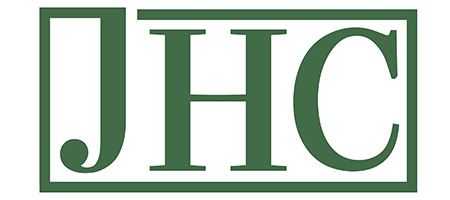Filing taxes can be a daunting task, even for the most financially savvy individuals. With changing laws, complex forms, and various deductions and credits to consider, it’s easy to make mistakes that can lead to penalties or missed opportunities for savings. Here’s a comprehensive guide to help you avoid common tax filing mistakes and ensure your tax return is accurate and maximized for your benefit.

1. Missing the Filing Deadline
One of the most straightforward mistakes to avoid is missing the tax filing deadline. In the United States, Tax Day typically falls on April 15th. Missing this deadline can result in late filing penalties and interest on any unpaid taxes. If you know you won’t be able to file on time, request an extension using IRS Form 4868, which will give you an additional six months to file your return. However, remember that an extension to file is not an extension to pay any taxes owed.
2. Incorrect or Missing Information
Ensuring that your tax return contains accurate and complete information is crucial. Here are some details to double-check:
- Social Security Numbers (SSNs): Verify that SSNs for you, your spouse, and any dependents are correct.
- Names: Use the exact names as they appear on your Social Security cards.
- Filing Status: Choose the correct filing status (e.g., single, married filing jointly, head of household).
- Bank Account Numbers: If you opt for direct deposit, ensure your bank routing and account numbers are correct to avoid delays in receiving your refund.
3. Mathematical Errors
Math errors are a common mistake on tax returns. Even a simple addition or subtraction error can lead to an incorrect tax amount. Using tax preparation software or hiring a tax professional can help minimize these errors. If you’re filing manually, take your time to double-check your calculations.
4. Failing to Report All Income
All income earned must be reported on your tax return, not just your primary salary or wages. This includes income from freelance work, rental properties, investments, and any side gigs. Common forms of income that are sometimes overlooked include:
- 1099 Forms: Income from freelance or contract work.
- Interest and Dividends: Income from savings accounts, investments, and dividends.
- Gambling Winnings: Any earnings from gambling activities.
- Alimony: Received alimony payments (for divorces finalized before 2019).
5. Overlooking Deductions and Credits
Tax deductions and credits can significantly reduce your taxable income and the amount of tax you owe. However, many taxpayers overlook or incorrectly claim these benefits. Here are some commonly missed deductions and credits:
- Student Loan Interest Deduction: Up to $2,500 of student loan interest can be deducted.
- Education Credits: The American Opportunity Credit and Lifetime Learning Credit can provide valuable tax savings for those pursuing higher education.
- Earned Income Tax Credit (EITC): This credit is available to low- to moderate-income workers and can be worth thousands of dollars.
- Medical Expenses: Deduct unreimbursed medical expenses that exceed 7.5% of your adjusted gross income (AGI).
6. Not Keeping Proper Documentation
Proper documentation is essential for substantiating the information on your tax return. Keep records of:
- Income: W-2s, 1099s, and other income statements.
- Expenses: Receipts, bank statements, and invoices for deductible expenses.
- Charitable Contributions: Acknowledgment letters from charitable organizations and receipts for donated items.
- Investment Transactions: Statements showing the purchase and sale of investments.
Maintaining organized records throughout the year can simplify the filing process and protect you in case of an audit.
7. Incorrectly Claiming Dependents
Claiming dependents incorrectly can lead to significant issues with your tax return. Ensure you are eligible to claim a dependent by reviewing the IRS guidelines. Common mistakes include:
- Divorced or Separated Parents: Only one parent can claim a child as a dependent in a given year. The IRS typically awards the dependency exemption to the custodial parent unless a waiver (Form 8332) is provided.
- Qualifying Relatives: Ensure that relatives claimed as dependents meet the IRS requirements for support, residency, and relationship.
8. Ignoring the Alternative Minimum Tax (AMT)
The Alternative Minimum Tax (AMT) is designed to ensure that high-income earners pay a minimum amount of tax. If you fall into a higher income bracket, you may be subject to the AMT. Tax software can help calculate your AMT liability, or you can use IRS Form 6251 to determine whether you owe AMT.
9. Failing to Sign and Date Your Return
It might seem like a minor detail, but failing to sign and date your tax return can result in the IRS rejecting it. If you’re filing jointly, both you and your spouse must sign. Electronic filers should use the appropriate PIN or sign digitally as instructed.
10. Neglecting to Pay Estimated Taxes
If you are self-employed or have significant income not subject to withholding, you may need to pay estimated taxes quarterly. Failure to do so can result in penalties. Use IRS Form 1040-ES to calculate and make estimated tax payments.
11. Overlooking State Tax Obligations
In addition to federal taxes, remember to file your state tax return if your state has an income tax. Each state has its own deadlines, forms, and rules, so make sure to comply with your state’s requirements.
Avoiding these common tax filing mistakes can save you time, money, and stress. Whether you choose to file your taxes yourself or hire a professional, staying informed and organized is key. Always double-check your information, keep thorough records, and take advantage of available deductions and credits to ensure a smooth and accurate tax filing experience. By taking these steps, you can minimize errors, maximize your refund, and stay compliant with tax laws.
